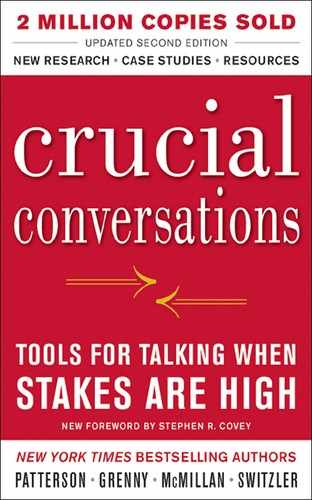JOSEPH
I got miffed at my fifteen-year-old son a couple of weeks ago. Now, I need to tell you that Hyrum is one of the finest young men you could meet. He is as honest as the day is long. He is smart, kind, clever, and as industrious as they come. I love this boy.
And yet, I found myself seething at him. In the moment, I felt he was rude, cold, ungrateful, and manipulative. That was my story about him. That story generated a potent emotion that was threatening to cause me to say something hurtful to him. He wasn’t behaving the way I wanted him to, and in the zeal of the moment, I felt an insane certainty that a well-aimed tirade might help him reform his life beginning this instant. In fact, I felt it was my moral duty as a loving parent to lay into him!
This embarrassing moment exemplifies one of the things I have become most conscious of in the last ten years. I have become more and more aware of (1) how true emotions can feel during crucial moments and (2) how false they really are. I have learned to be suspicious of my convictions during these moments of strong emotion and more confident that if I use the tools I’ve learned I can create an entirely different set of emotions.
The second thing I have learned over and over again is how much these emotions can corrupt my view of those closest to me. When I am in the grip of Victim, Villain, and Helpless Stories, when my motives degenerate and I am driven by a desperate need to be right—I don’t see others as they really are. Even my precious son can look like a monster.
As my brain tried to force an unhelpful sentence out of my mouth aimed at the heart of my son, I did what we’ve advised you to do in similar circumstances. I asked myself, “What do I really want?” I challenged my story. I asked why a reasonable, rational, decent person would do what Hyrum had done. I examined my role. In a matter of seconds I started to feel muscles in my chest relax. My shoulders dropped a full two inches. My hands unclenched. But most important, my heart did too.
As this happened, Hyrum literally transformed in front of me. He was no longer a monster—he was a vulnerable, beautiful, precious boy. Whereas moments earlier I was thoroughly convinced my view of him was just and true, I now had an entirely different view that felt even more just and true.
Our emotions are incredibly plastic. In crucial moments they are almost always wrong. With practice, we can gain incredible power to change them. And as we change them, not only do we learn to change how we see those around us, but we learn to change our very lives as well.
